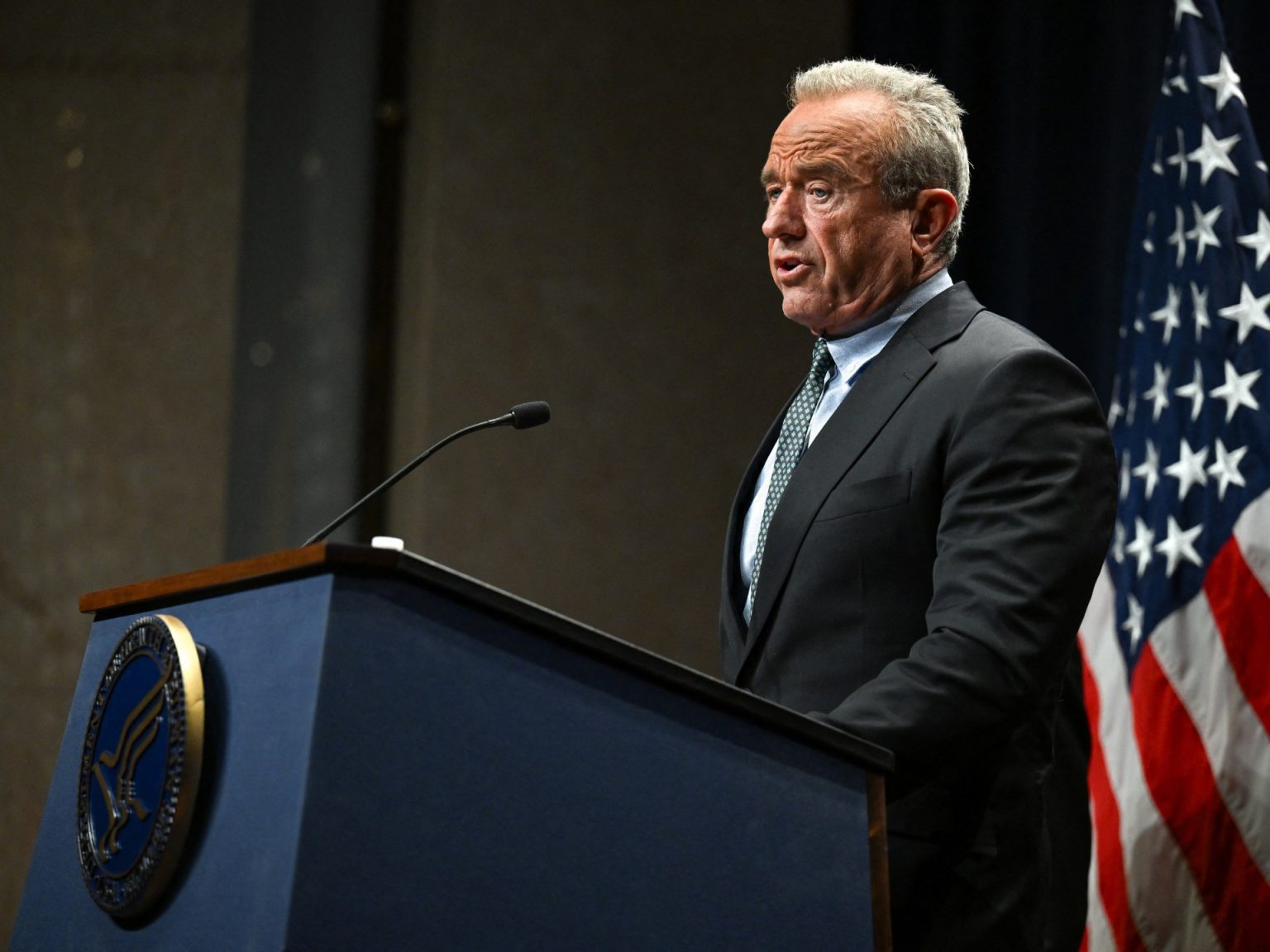Listen to the article
In an apparent shift from previous statements, United States Health and Human Services Secretary Robert F. Kennedy Jr. has softened his stance on the alleged connection between Tylenol use during pregnancy and autism in children.
At a Wednesday news conference, Kennedy adopted a more measured tone than in past public appearances, acknowledging limitations in the scientific evidence. “The causative association between Tylenol given in pregnancy and the perinatal periods is not sufficient to say it definitely causes autism,” Kennedy told reporters. “But it’s very suggestive.”
Kennedy emphasized a cautious approach, advising pregnant women and mothers of young children to consult with medical professionals. “That’s why our message to patients, to mothers, to people who are pregnant and to the mothers of young children is: Consult your physician,” he said.
This more moderate position aligns more closely with guidance from established health organizations. While some studies have examined possible connections between acetaminophen (the active ingredient in Tylenol) and autism, the scientific community has not reached consensus on a definitive link. The World Health Organization clarified in September that despite “extensive research,” “no consistent association has been established” between the medication and autism.
Despite the lack of conclusive evidence, claims about Tylenol’s alleged dangers have already sparked legal action. On Tuesday, Texas Attorney General Ken Paxton filed a lawsuit against Johnson & Johnson and Kenvue, the manufacturers of Tylenol, accusing them of deceptive marketing practices.
In announcing the lawsuit, Paxton echoed rhetoric used by former President Donald Trump and Kennedy. “By holding Big Pharma accountable for poisoning our people, we will help Make America Healthy Again,” Paxton stated, referencing Kennedy’s “MAHA” slogan. The lawsuit alleges violations of Texas consumer protection laws, claiming the companies “deceptively marketed Tylenol as the only safe painkiller for pregnant women.”
The controversy highlights an ongoing pattern of scientific misinformation being promoted by high-ranking officials. Trump previously made unsubstantiated claims about Tylenol during a September news conference, stating, “[Using] acetaminophen – is that OK? – which is basically, commonly known as Tylenol, during pregnancy can be associated with a very increased risk of autism. So taking Tylenol is not good. I’ll say it. It’s not good.”
Kennedy himself has made sweeping statements about Tylenol’s purported risks despite lacking medical credentials. During an October 9 cabinet meeting, he claimed, “Anyone who takes this stuff during pregnancy, unless they have to, is irresponsible.” He also incorrectly characterized studies on male circumcision earlier this month, falsely suggesting an increase in autism among children who were “circumcised early” and attributing this to Tylenol use.
Kenvue has defended its product, emphasizing that acetaminophen remains the safest pain relief option for pregnant women. The company noted that untreated high fevers and pain pose their own risks to pregnancy. “We stand firmly with the global medical community that acknowledges the safety of acetaminophen and believe we will continue to be successful in litigation as these claims lack legal merit and scientific support,” Kenvue stated.
Tylenol and other acetaminophen products represent a significant segment of the over-the-counter pain relief market in the United States, with millions of Americans using these medications regularly for various conditions. The controversy surrounding its use during pregnancy has created confusion for expectant mothers seeking safe pain management options.
Medical experts continue to advise that pregnant women should discuss all medication use with their healthcare providers to weigh potential risks against benefits based on individual circumstances.
Verify This Yourself
Use these professional tools to fact-check and investigate claims independently
Reverse Image Search
Check if this image has been used elsewhere or in different contexts
Ask Our AI About This Claim
Get instant answers with web-powered AI analysis
Related Fact-Checks
See what other fact-checkers have said about similar claims
Want More Verification Tools?
Access our full suite of professional disinformation monitoring and investigation tools




8 Comments
Interesting that RFK Jr. has shifted his stance on the Tylenol-autism link. Retracting previous claims and taking a more cautious approach seems prudent given the lack of scientific consensus on this issue.
Agreed, it’s important for public figures to be responsible with medical claims and direct people to consult their doctors, especially on complex topics like this.
RFK Jr.’s retraction of his previous claims about Tylenol and autism is a welcome development. Acknowledging the lack of scientific consensus on this issue is the right approach, rather than making definitive statements.
It’s good to see RFK Jr. taking a more measured approach here. Retracting previous claims shows he’s willing to adjust his position as new information emerges, which is important on sensitive health topics.
I appreciate RFK Jr.’s shift to a more cautious stance on the Tylenol-autism link. Recognizing the limitations in the evidence and advising pregnant women to consult doctors is responsible, given the potential implications.
Agreed. With public health issues, it’s crucial for influential figures to exercise restraint and defer to established medical consensus, rather than prematurely drawing firm conclusions.
While the potential connection between acetaminophen and autism is concerning, I’m glad to see RFK Jr. acknowledging the limitations in the existing evidence. Consulting medical professionals is the right advice for pregnant women and new mothers.
Absolutely. There’s still a lot of uncertainty, so erring on the side of caution and deferring to expert medical guidance is prudent.